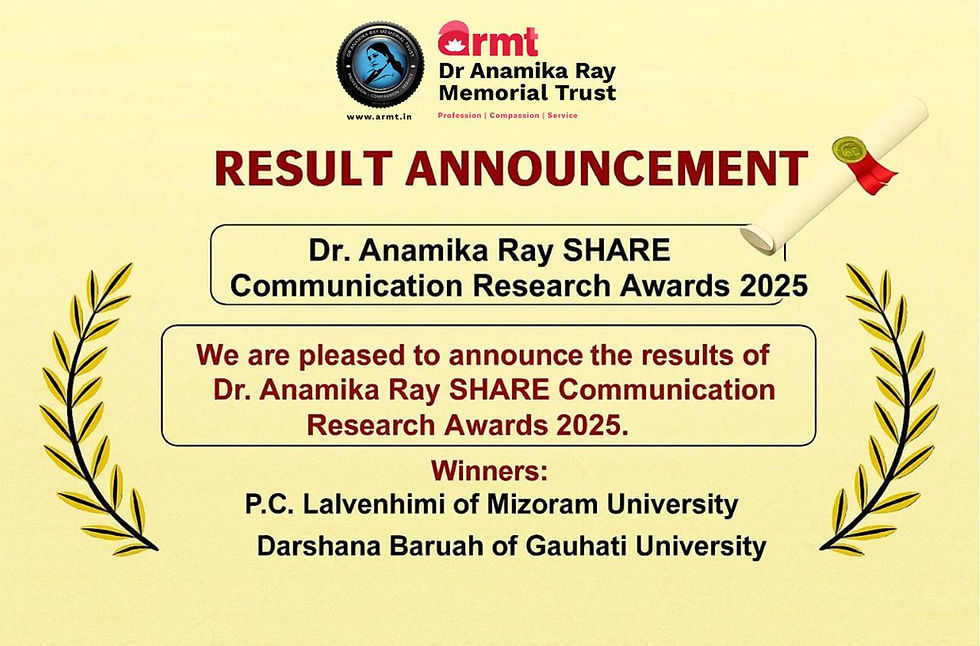Dokmoka Roundtable: Introspection over media’s role
- Ankuran Dutta

- Apr 4, 2020
- 2 min read
17 June, 2018

Is contemporary society getting caught up in a culture of celebrating violence, and does the disintegration of community life have anything to do with it? So mused Kuladhar Saikia, DGP, Assam Police at a round-table discussion over the Dokmoka lynching incident held on 17 June, 2018 Sunday at the Regional Science Centre (RSC), Khanapara, Guwahati.
ARMT Round-table-
Dokmoka Lynching: Role of Media and Community in dispelling Superstition & Distrust
With the State administration battling to control the fallout of the incident fuelled by an outpouring of hate posts in social media, the discussion was an initiative for introspection and seeking solutions by Dr Anamika Ray Memorial Trust in collaboration with RSC Guwahati and the Department of Communication and Journalism, Gauhati University. Titled ‘Dokmoka Lynching: Role of Media and Community in dispelling Superstition & Distrust’, the discussion was conducted by senior journalist Mrinal Talukdar and participated in by an array of experts, social science thinkers, civil society members, academicians, science communicators, activists and mediapersons. A large number of points were raised and interventions made during the course of the two-and-half hour long brainstorming session. The menace of fake news and malicious rumors purveyed through social media was focused upon, with R Chandranathan, ADGP, Assam Police speaking about the need to first accept that social media is a disruptive technology, and then apply human values to control it.
Other participants spoke about the necessity of proper education and sensitization in using social media from school level onwards, the personal etiquette of not sharing harmful or false posts, and a counter strategy to flood social media with positive and constructive news by agencies concerned. The role of conventional media too came in for criticism, with Dr Ramesh Barpatra Gohain, Advocate General, highlighting the pernicious trend of trial by media and careless reporting of community identity of criminals, which pose a serious misuse of freedom of speech and expression. The repetitive airing of visuals with violent content by TV channels racing for TRPs, neglect and lack of understanding of deprived areas where incidents like witch hunting and lynchings occur, sensational coverage of sectarian conflicts yet disregard to fact-finding reports by investigative agencies, indifference to developments in science and technology etc., were among the issues raised that called for soul searching by mainstream media.
Other important interventions related to the continuing need for developing scientific temper, rule of law in society and human rights, constructing a proper narrative by media to eschew hate and divisive agenda, understanding the tribal reality and respect for their way of life, and working towards ending distrust between various communities in the State. Outlining the soft policing tactics applied in calculated manner to defuse the crisis, State police chief Kuladhar Saikia called for the need of media houses coming together with a coordinating body to set standards for news reporting. Summing up the discussion, Mrinal Talukdar cautioned that with the June 30 deadline for publication of second partial draft NRC looming before the State, the government, various stakeholders and the general populace need to be on guard so that the mischief of Dokmoka lynching type incidents does not recur to threaten public order and peace.



Comments